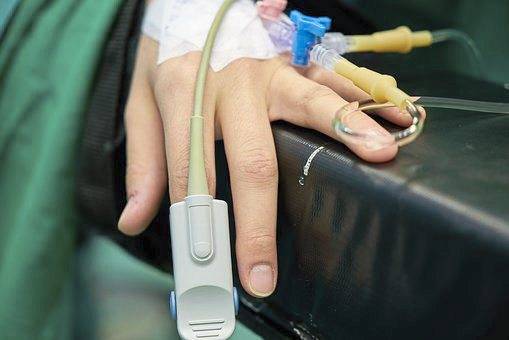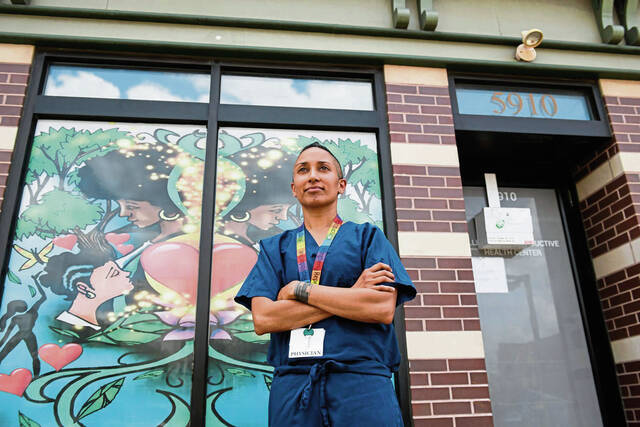We can agree that all medical personnel should be utilized to fight the covid-19 pandemic. However, this is not the time for nurse anesthetists to push a long-fought personal agenda, which is independent practice separating the physician from the patient during the highly complicated and risky period while under anesthesia (“Jessica Poole: Pa. should utilize nurse anesthetists in covid-19 response,” April 11, TribLIVE).
There is no doubt that certified registered nurse anesthetists have extensive training in intensive care nursing, just as my background involves a significant amount of intensive care medicine. Equally necessary but not the same; not the same in training and not the same in implementation.
Furthermore, even though my background involves intensive care, I, even with my medical knowledge, could provide care but not the highest level of care as would be provided by a practicing intensive care physician in 2020, especially involving the advanced lung and cardiac pathology of the covid-19 patient.
To assume anyone can step into those shoes and independently care for such patients without the full scope of knowledge of a team of doctors, nurses, pharmacists and other medical professionals is not a reasonable assumption.
Such a drastic move in patient care is not necessary especially when it comes to anesthesia practice during the pandemic. Currently, the discontinuation of elective surgical cases opens a significant amount of time for the physician anesthesiologist to focus on the covid-19 patients, whether alone or in a supervisory role with a nurse anesthetist, resident or anesthesiologist assistant. A nurse anesthetist is not needed to practice independently at this time.
To refute the argument of the similar education of a certified registered nurse anesthetist and a physician anesthesiologist: Our educations, although both advanced from basic nursing or basic medical education, are not the same.
First, all education starts with a four-year undergraduate education, the foundation of the advanced education process. The nurse anesthetist obtains a degree in basic nursing care and the anesthesiologist obtains a degree in premedicine or one of the basic sciences.
The last two years of a nursing undergraduate degree involve clinical rotations. For the physician, the undergraduate degree involves a four-year study of the sciences. The paths now diverge. The nurse anesthetist will take the nursing boards and begin working as an acute care nurse in order to complete the needed clinical work to be considered for a nurse anesthetist program. That clinical experience is in nursing and not as a physician. The physician anesthesiologist, however, now must attend medical school, which is a four-year education involving two years of study in the medical sciences and two years of clinical rotations.
After nurse anesthetists complete at least one year of critical care nursing, they can enter a school for nurse anesthesia, which is two to three years of education including clinical rotations and the potential for an advanced degree, whether a master’s or Ph.D. The medical student has to be accepted into a four-year residency in anesthesiology, which includes a year of medical rotations outside the realm of anesthesiology and three years specific to the science of anesthesiology, including intensive care. Many anesthesiologists then will add a fifth year specializing in areas such as pediatrics, cardiac, pain management or intensive care.
It is difficult to compare education in years, but considering the number of years required, the nurse anesthetist path involves four years of undergraduate education, one year of intensive care nursing and three years of nurse anesthetist school for a total of eight years. The anesthesiologist has a four-year undergraduate degree, a four-year medical degree, a four-year anesthesiology residency and one year of a specialty fellowship for a total of 13 years.
But, the most important difference is the foundation of the training; one being in nursing and one in medicine. Both amazing, vital and advanced; but not interchangeable.
The last common argument involves the studies that show no difference in patient outcomes whether the care is by a nurse anesthetist or an anesthesiologist. First, many of the cases and studies compare a nurse anesthetist with a level of supervision by a physician versus an anesthesiologist working alone. I would hope there would be no difference between the two.
Second, many studies compare only the basic of anesthesia care and not the extremes of patient illness and surgical invasiveness. To the defense of the nurse anesthetist, however, the vast majority of advanced anesthesia care is done in larger institutions which utilize almost universally the anesthesia care team model with a nurse anesthetist, resident or anesthesiologist assistant and a sub specialty trained anesthesiologist.
Third, you have to really understand the study design and who is funding the study. Many of the studies commonly touted are funded by nurse anesthetist societies or organizations employed by those societies.
Nurse anesthetists are an important part of the anesthesia care team which includes a physician. However, a nurse anesthetist and anesthesiologist are not interchangeable and never were intended to be. The covid-19 pandemic and the serious nature of the pathology involved with this patient population is not the time to push an agenda and not the time to test the validity of taking the doctor away from the patient.
Joseph Answine, M.D., F.A.S.A., is a partner in Riverside Anesthesia Associates, Harrisburg, and vice president for scientific affairs for the Pennsylvania Society of Anesthesiologists.








